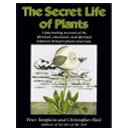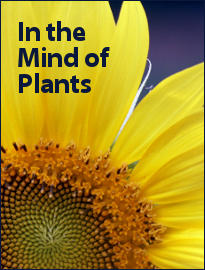The Botany of Desire
They are four of the most ordinary plants. We've always had this idea that we are in charge, but what if, in fact, they have been modeling us? We don't give enough recognition to plants. They have been laboring on us, and they've been utilizing us for their own goals. There are four plants that have walked the road to accomplishment by fulfilling human ambitions. The tulip, by satisfying our longing for a certain kind of attractiveness, has gotten us to take it from its basis in Central Asia and distribute it around the world.
Marijuana, by satisfying our ambition to change awareness, has gotten us to risk our lives and freedom, in order to produce more of it. The potato, by fulfilling our desire for mastery, the control over surrounding, so that we can nourish ourselves has gotten itself out of South America and extended its range far beyond where it was long time ago. And the apple, by satisfying our appetite for sweetness, begins in the woods of Kazakhstan and is now the worldwide fruit. These are great champions in the game of domestication.
The bee believes it's getting the best of the deal with the blooming apple. It's getting in, it's taking the nectar and has no sense that it's picked up the pollen and is transferring it to another location. For the bee to assume that it's in charge of this friendship is really just a lack of success of bee's insight. We have the same failure of imagination. We are too working for the potatoes in some sense. We are planting them, we are giving them a habitat, and in the same time we think we're calling the shots.
Wouldn't it be appealing to look at our connection to domesticated plants from the plants' perspective? Of course, plants don't have awareness or goals, but by using our consciousness we can put ourselves in their roots to see things from their angle. When we do that, nature unexpectedly looks very different. We become aware that we're in the nature's web, not outside of it. These plants are reflectors in which we can see ourselves in a different way.




It's an interesting thought but it doesn't add up if we think about it. I mean what does that say about the meat we eat? Do the cows and pigs WANT to be mistreated and abused in industrial breeding facilities, and the chicken want to be cramped up in close buildings? just so that they ensure their survival of their specie?
incomplete.. should be 1hr42mins long
Too many mistakes in this documentary, not going to name them all but really??... Bees are unaware they take pollen???? apparently that person knows nothing about bees and the importance of pollen to the beehive..
I don't understand all the comments here opinionizing about which plant is most interesting or discussing the legalization of marijuana. None of that is to the point- which should be, how worthwhile is the video? I am a teacher of AP biology and have shown this for several years. Its a great combination of information about evolution, human agriculture, and ecological principals, nicely wrapped in a package of familiar, relevant plant examples that the audience will think about in a new way. Beautifully done. Forget the politics.
There is only 40min of the doc. here! where is the rest?
very interesting doc, well worth a watch, giving different perspective of plants throughout history,
as an irish person i feel certain important points about the famine were left out, yes there was a monoculture in the cultivation of the 'lumper' potato, for its high yields. But at the same time as people were starving and dying, they were tending crops of grain and vegetables, which were cash crops, being exported to england. The common people were largely tenant farmers (resulting from the harsh colonial regime in which lands were taken from the irish); they were forced to scratch out what little subsistence they could out of tiny plots, and so people became reliant on potatos.
a wee bit of history there for ya folks
Can anyone tell me why it only lets me watch 40 minutes? I tried the 'next' button but it doesn't do anything.
"How plants reproduce a whole lot" by Michael POLLEN.
HAHAHAHAHA
One of the best Documentary's on the site.
I believe the Coca plant and the Poppy (especially the poppy actually) have both done themselves service by being useful to humans, at least as much so as MJ. I've always argued with vegetarians (mostly playfully, but also with an absolutely open mind insomuch as being willing to admit what I don't know) they've no idea if they're causing pain to a plant, or if vegetation has more awareness of what's being done to them than we give them credit for. That is, why is it okay to kill a plant, but not an animal? I mean, we have MORE than enough evidence plants react positively to positive human attention. Certainly that alone has to give one pause as to the possibility plants "think."
One family of plants that might well also be mentioned is the Grass family, AKA cereal grain plants - such as wheat, rice, millet or maize. They are certainly also being spread ferociously by humans; probably over the largest areas of all cultivated crops, or maybe even the totality of areas on Earth that have been adopted for human activity.
The "right wing" loves tulips the "left wing" loves roses?
I fail to understand why rose was not in the list ???
Maybe the man prefers two lips.
:) Nice word-play Yaar
Because the tulip and the rose has bin spread by humans for more or less the same reasons,but the tulip has a much more interesting history.
You should see the tulip as ONE example of flowers spread worldwide because of its beauty and smell alone.
While apples is ONE example of plants spread ww because of its tasty fruit.
etc etc
I hope you understand now why tulip is in there but not roses.
No Sir, I am still in the dark. Probably because I am from that part of the world where rose is much more recognized as an eternal beauty and symbol of romanticism but tulip is more associated with commercialism. Tulip has the history of ups and downs, more downs than ups. But rose has always been a dependable factor.
ok but thats kind of besides the point.
they had to chose one and im sure there was no deeper reason behind the choise.
why apples and not oranges?
I just popped in to say this is one of my favourite documentaries ever made.
Nice doc, especially about discussion of monoculture.
The book was great, good 2hrs rendition of it.
Good doc.
A big mystery for me though is why the governments around the world haven´t picked up earlier on legalizing marijuana.
It´s a great income for them. It costs the society 1000s of % less in money in comparance with what alcohol costs the society. (car accidents, murder, assaults, the list goes on and on and on, almost everything being taken cared of by either the legal system or the medical system (or both) is alcohol related...)
And if you want to believe some conspiracy theorists, it´s the perfect "medicine" to keep the population docile.
Not to mention it makes people feel good of course... :)
8/10 on doc.
Some countries are trying hard to re-legalize it while trying their "bestest" to make it profitable to them. Once they find how to, it will be legal as there are no decent reason to imprison a person for the production and sale of such joyous plant.
Money is it's worse enemy.
A big part of the fear affected reasoning of certain administrations over the decades - Nixon's being the prime example - was that Marijuana became associated with the counter culture and anti-war movement and was making people question their government too much. For some reason governments don't like that :-/
Personally I think it's criminal how pot smokers are treated and how it's a schedule 1 controlled substance. Draconian doesn't adequately capture it.
It seems we've reached a tipping point in popular opinion now though and I think we all know real change comes from the people and rarely from our elected officials.
"Feel-good" marijuana isn't why hemp was criminalized in the first place. The campaign was intended to protect the interests of other industries, such as cotton. America's later market dominance accounts for the criminalization in other countries. Of course, this many years later, everyone's forgotten the original marketplace forces behind the politics.
Not really a mystery. =)
Sad but true in a lot of ways i suppose...
Especially since the hemp/marijuana plant is useful in SO many other regards than just getting high...
Capitalism/Free market wins again :/
@Kateye70: Right on all counts!
I quite enjoyed this doco, fairly light and easy watching, with some interesting bits of information.
The day will come to pass when all you naysayers will look on the glory of the apple-tulip-maryj-spud hybrid and praise the glory and saviour of all humanity that is Monsanto. Hallelujah!
edit: I'm joking.
That was the funniest comment I've read for a long time! I've slaved away transporting my favorite plant (the maternity plant) to several places in Asia, in including where I am now. Pop a few "clones" in your pocket (just 1 cm across), and plant them in your new home. They are producing new clones in 3 months tops. Just love them. Had them as a kid and still have them (two species), and I plan to take them wherever I go. I think they're originally from Mexico.
Very odd looking plant, never heard of it before you mentioned it. Might be worth adding to the Monsanto super hybrid plant :-)
I've had them for decades and never knew they were an angiosperm (a flowering plant) until I found a neglected plant in Korea that someone let die a long and languishing death by lack of water at a restaurant. It bloomed as its last act of life; I was amazed. Keep them healthy and they "clone" away for as long as you have them--kill them off and they flower to make a seed to overcome a lasting "drought" or adverse situation where a clone could not survive. Made me love them even more.
jaberwokky: You may be joking, but funny none the less.
Note: Has Monsanto produced anything yet that we do like? (there must be something; I just can't think of anything off the top of my head)
I agree it's really hard to impart an intrinsic value to anything they've produced thus far. However tulispumariap (that's what it shall be called) will make everyone forget about agent orange ... literally.
Edit: Crap it I just realised I'll need to work the maternity plant into my new mass marketing monicker. ffs
Great documentary but the dude slurping the various apples and trying to talk is just gross.
That apple sounded good that made the doc.
I wondered about why Johnny Appleseed planted seeds. Could it be so that the pioneers who came after would have a compatible fruit tree to graft onto? Since it was the law that you had to plant apple trees to prove that you were a legitimate settler, the apple saplings would have been readily available to buy on site and you could graft onto the transplanted trees the more desirable types of apple sprigs when it was convenient. Land speculators wouldn't have to carry apple sprigs with them, either, to prove that they were legit settlers. They could plant the Johnny Appleseed saplings, purchased locally, to show they were settlers and then sell the farm later for a good profit. Just a thought...or two.